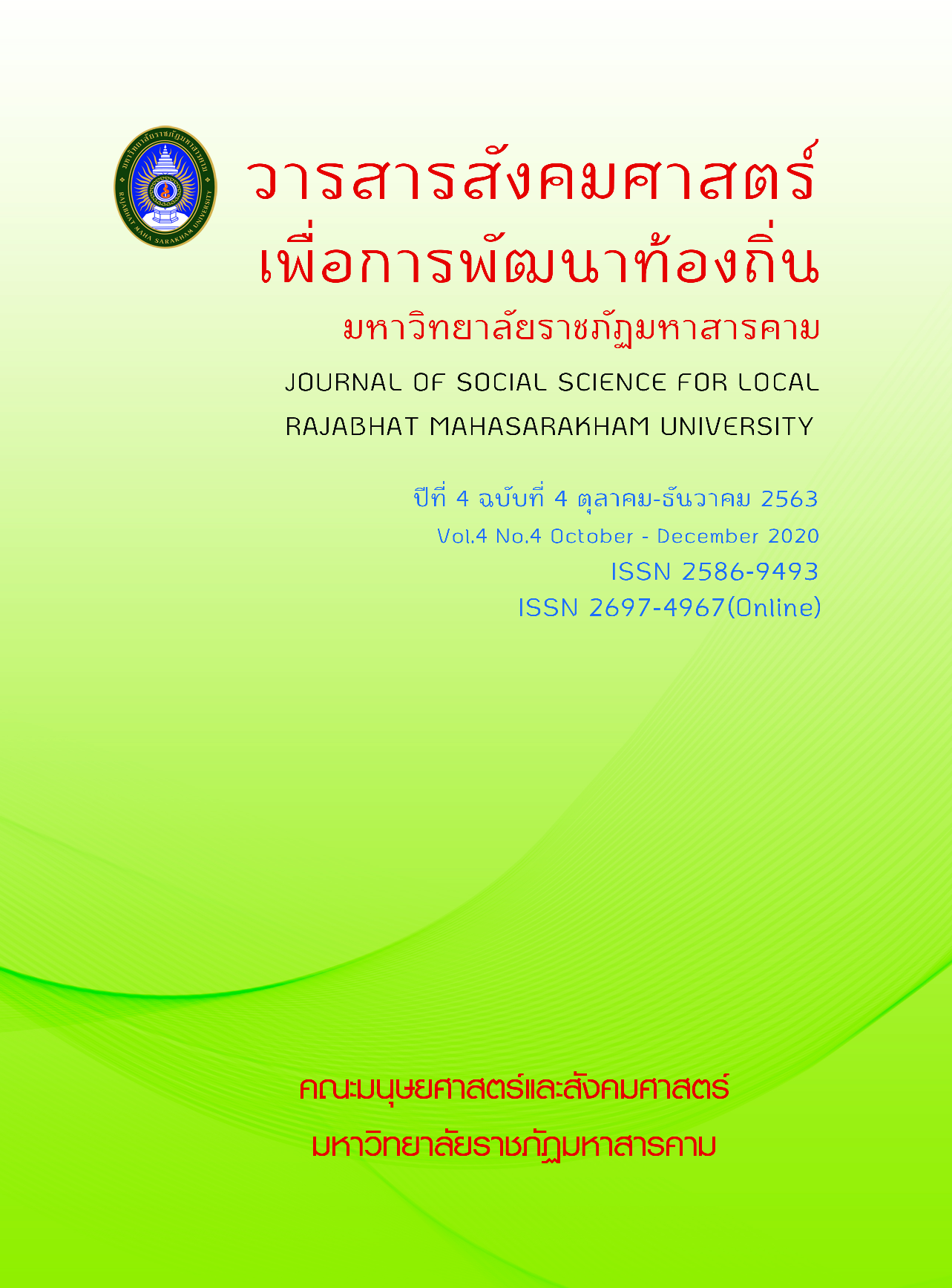Effects of Archaeological Site Registration toward the Phimai Historical Park: a Case Study of Nai Mueang Subdistrict, Phimai District, Nakhon Ratchasima Province
Keywords:
Effects, Archaeological Site Registration, the Phimai Historical ParkAbstract
The objectives of this research article are 1) to study effects of archaeological site registration toward the Phimai Historical Park and 2) to study the community’s resistance toward this registration. Research methodology is qualitative approach and focuses mainly on in-depth interview by purposive selection with 10 interviewees. They divided into 2 groups; the first are from regional and local administrative officials and the second are 6 interviewees from who were directly affected which consisted of a village headman, a merchant, a technician, 2 farmers and a self-employed. Also documentary research and participatory observation used in this article. The results of the study showed that effects of archaeological site registration toward the Phimai Historical Park consisted of 6 problems: economic effects, local people mentality, some people were prosecuted, borrowing credibility, housing construction and some people felt oppressed. While the community’s resistance consisted of 7 methods: 1) public protests 2) petition administrative court 3) expression through billboard 4) petition Prime Minister 5) petition Minister of Culture 6) petition the Ombudsman and 7) petition Commissioner of religion, arts and culture.


